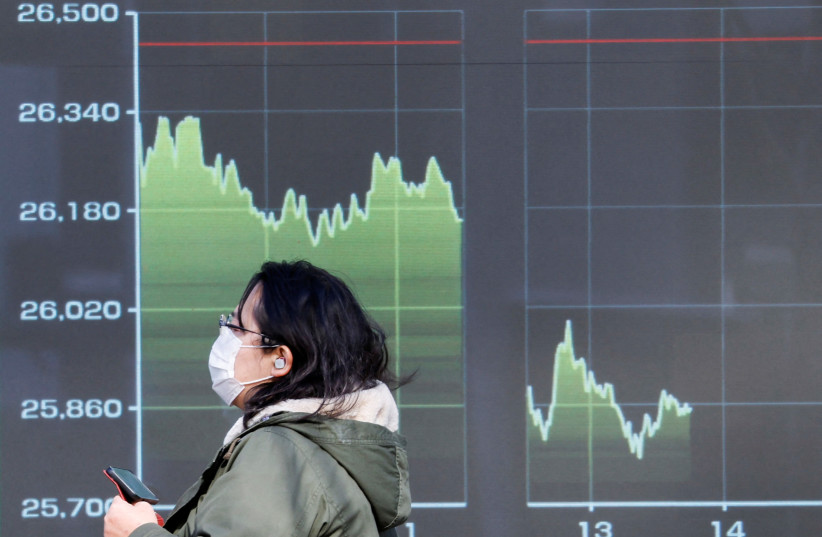WASHINGTON – The US and the EU, together with Canada and the UK, on Saturday announced they will remove “selected Russian banks from the SWIFT messaging system.”
“This will ensure that these banks are disconnected from the international financial system and harm their ability to operate globally,” the countries said in a statement.
But what does it mean, and how it could affect Russia’s economy?
According to Gary Clyde Hufbauer, a nonresident senior fellow at the Peterson Institute for International Economics, the “select banks” appear to be the larger Russian banks, probably around 10 of them.
“Being excluded from SWIFT means that they cannot longer use that secure network for sending or receiving payment instructions from about 11,000 banks around the world,” he said. “That means that the clients of the excluded banks will have a harder time making or receiving payments.”

The excluded banks will try to use the Chinese interbank messaging system for making payments, Hufbauer said.
“This will be clumsy, but a workaround of sorts,” he said. “Note as well that the accounts held by the select banks in US and European banks are frozen, so even with a workaround, those monies will not be available for making payments.”
How will it impact the Russian economy?
“A great many Russian firms will be affected because they buy key components from the West and sell a lot of products in Europe – about a third of Russian trade,” Hufbauer said. “We expect the Russian ruble to crash, both because select banks and the central bank are blocked, meaning they have no access to their reserves held in Western banks – probably almost $1 trillion – and therefore cannot support the ruble. In turn, this will raise inflation in Russia. I think double-digit inflation is possible, say 15%.”
And what else remains in the US toolbox?
According to Andrew Lohsen, a fellow in the Europe, Russia and Eurasia Program at the Center for Strategic and International Studies, at this point, “we have gone from the use of sanctions as a deterrent measure to the use of sanctions as a punitive measure to try to compel Russia to change its course of action in Ukraine.”
The gradualist approach that we’re seeing from the White House in imposing the sanctions “is a bit of a surprise, given the fact that we had heard the messaging from the White House, saying that the United States would impose the full range of sanctions against Russia immediately in the event of an invasion,” he said.
“What we’ve seen over this last week suggests they’re pursuing a slightly different approach,” he added.
The restrictions on sovereign-debt trading “will certainly make it a lot harder for Russia to raise money, and placing individual sanctions on Russian officials is a necessary step,” Lohsen said.
“I think what we’ve seen is just the opening round,” he said. “There’s still a lot more that can be done, and I think we will see further sanctions in the days and weeks to come. Also, it’s notable that some of the sanctions that they announced on major Russian banks before were not full-blocking sanctions.
“Sberbank, for example, the Russian No. 1 bank, [with] about a third of Russia’s assets, wasn’t subjected to the same degree of restrictions that VTB, the second-largest bank, was. So there’s still some room to ramp that up, and I think what we’re seeing is this desire not to disturb Western markets as well to try to approach this.”
“We need to be thinking about a lot more than just sanctions,” Lohsen said. “We may need to be thinking of support for Ukraine, and we’re in the early stages of a conflict. It’s still perhaps a little early to see what support is most needed.”
US Marine Corps Reserve Col. (ret.) Mark Cancian, a senior adviser with the CSIS International Security Program, said calls to create a “no-fly zone” in Ukraine are not possible to implement.
“A no-fly zone is an act of war,” he said. “To impose a no-fly zone, the United States and NATO have to fly hundreds of aircraft over Ukraine. They would have to attack Russian aircraft and attack Russian air defenses on the ground. It would be war with Russia. So that’s not practical, and the US military knows that.”
Regarding the prospects of sanctions against Russian oil and gas, Cancian said: “The problem with oil is that the Europeans need Russian oil and natural gas, so I don’t think our allies would be able to tolerate that.”
